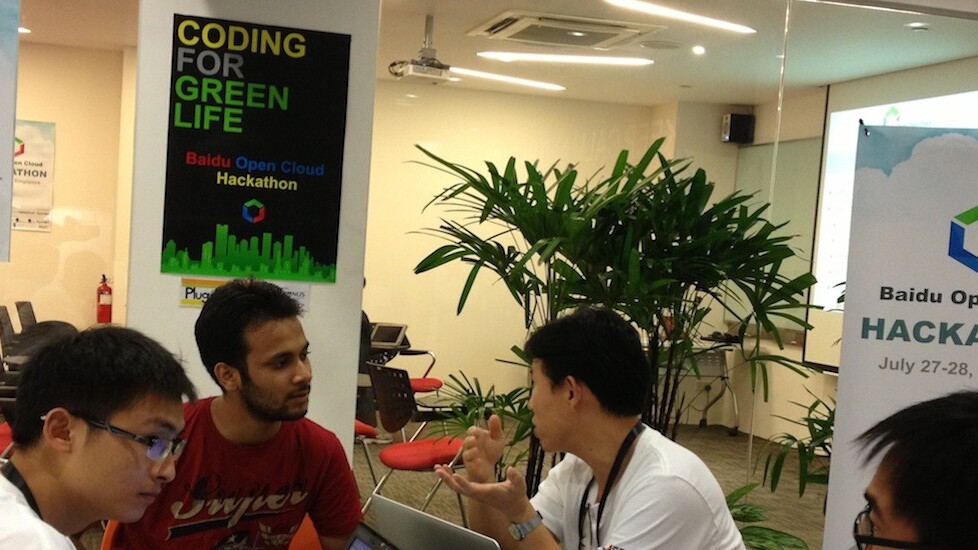
Chinese search giant Baidu took its Open Cloud Green Living hackathon beyond mainland China’s shores for the first time over the weekend, going to Taipei and, particularly of interest — Singapore.
The fact that Singapore was chosen is a clear sign that Baidu is keen on working even closer with the nation to expand its presence in Southeast Asia. Last year, the Chinese company made its first move into Singapore by opening a joint laboratory with the Institute for Infocomm Research (I2R), which is under Singapore’s government-linked Agency for Science, Technology and Research (A*STAR).
After achieving dominance in the Chinese market, Baidu has turned its focus overseas. Li Mingyuan, the general manager of Baidu Mobile & Cloud Business Group, told TNW that Baidu is starting to see a dearth of talent from the universities in Beijing, where the company has developed rapidly in the past few years. It has therefore opened up its services to developers as it seeks to build a larger ecosystem to boost its offerings, and this includes spreading its presence beyond China.
The hackathon saw certain Singapore startups take the stage, including food-themed photo sharing app Burpple, which sent its team to develop an app that keeps track of a user’s diet with image recognition technology.
Southeast Asia makes for a logical next step, in particular Singapore. Li describes Singapore as a place where Eastern and Western culture and business ideology meet, and said it was possible that the company may expand its research and business investment here, or even set up a representative office in the future, depending on the flow of talent and its Southeast Asian market strategy. He mentioned that Baidu has also been in talks with local authorities about possible future cooperation, though it is not yet clear what form this would take.
The Chinese giant’s hackathon is also a clear sign of its push into mobile and how the company is trying to diversify its business by drawing in more developers to build apps that may be useful to it in the future.
Li noted that Baidu will definitely increase its investments in the mobile sector, and did not rule out the possibility of making these investments in Southeast Asia.
Baidu has been devoting substantial resources to targeting the Southeast Asian region. In July, the company opened the doors to a research center that will focus on natural language processing for Southeast Asian languages.
The company also launched its Hao123 web portal in Vietnam and Thailand and was pushing a Vietnamese version of its PostBar service. Its Baidu Knows service is also available in Thai.
Headline image via Baidu
Get the TNW newsletter
Get the most important tech news in your inbox each week.





